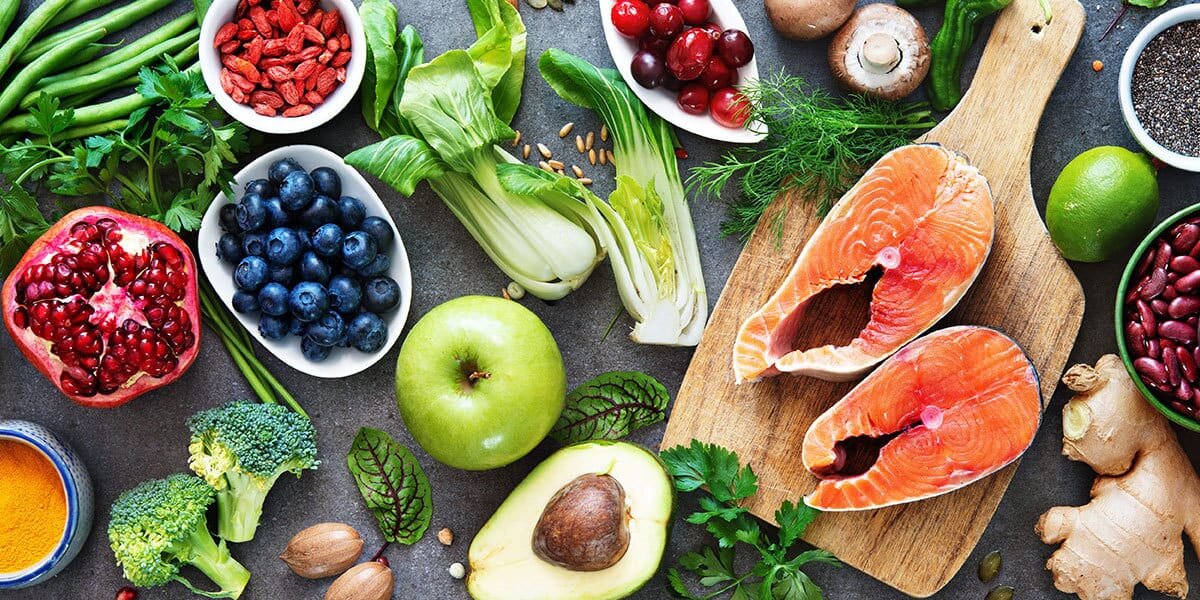The endocrine system is made up of glands and organs that produce hormones and act as powerful messengers throughout our body. This includes the pituitary gland that acts as the lead controller, the pineal gland that produces melatonin, the thyroid gland that controls metabolism, the adrenal glands that produce cortisol and regulate blood pressure, the pancreas that converts food to fuel, the testis that produce sex hormones, testosterone and sperm, and the ovaries that produce estrogen and progesterone. If in balance, the endocrine system and its hormones work in perfect symphony. In order to be in balance, the endocrine system has three main requirements.
- A healthy balanced gut. You gut produces specific enzymes to break down not only your food, but circulating estrogen in the gut. If your gut bacteria is out of balance, these enzymes cannot metabolize estrogens.
- Stable blood sugar levels. Poor diets consisting of low fiber, high refined carbohydrates and high saturated fats lead to insulin resistance. Typically our food is sent to specific cells in order to convert to energy. Insulin is the hormone that helps control the amount of sugar in the blood, but when the body is constantly flooded with sugars, the cells no longer respond normally to insulin and glucose builds up in the blood, eventually leading to not only diabetes but type 2 diabetes.
- A well functioning liver. Your liver metabolizes sugars, breaks down proteins and carbs into essential fatty acids and removes toxins and excess hormones. Think of it as your trash removal service, discarding of your waste after its served its purpose for you.
Woman experience natural and normal hormone fluctuations like menstruation, pregnancy, postpartum and breast feeding, and menopause, but certain symptoms can indicate an abnormal imbalance: unexplained weight gain, fatigue, insomnia, changes in hair, skin and nails, digestive issues like constipation, diarrhea, indigestion and heartburn, low libido, intense PMS, irregular periods, and acne.
What are the causes of hormone imbalance?
- Poor diet and gut health. The gut is referred to as your second brain and in some ways it is more powerful than the brain in your skull. The gut has its own independent nervous system called the “Enteric Nervous System”. 70% of your immune system is located in the gut and 90% of your serotonin is produced in the gut (the brain-gut link), as well as melatonin. Certain symptoms like migraines, depression, obesity, arthritis, autoimmune disease, thyroid issues, and nutrient deficiency can all be tied to gut dysbiosis (an imbalance of good and bad bacteria).
- Toxins known as xenoestrogens include synthetic hormones in dairy and meat, chemicals in household cleaners and personal care products, and pesticides. These chemicals mimic estrogen in the body, leading to estrogen dominance. Estrogen dominance occurs when your body tries to metabolize the high amounts of estrogens by pulling from your progesterone supply. As your progesterone decreases and your estrogen increases it puts you at risk of many chronic issues such as thyroid issues, high blood pressure, insulin resistance, diabetes and especially hormone dependent cancers like breast cancer.
- Stress: Chronic stress causes your pituitary and adrenals to ramp up the production of cortisol. High cortisol levels slow digestion and production of stomach acid leading to GERD and acid reflux. Many associate acid reflux with too much stomach acid, but its actually the opposite. High cortisol levels cause high blood pressure and blood sugar levels. When stressed the body releases glucose into the blood to help fuel the body, increases sugar levels. High cortisol levels increase appetite and insulin levels resulting in weight gain. High cortisol levels reduce serotonin and dopamine levels leading to anxiety and depression.
- Weight: Excess body fat increases estrogen levels, leading to high blood sugar, insulin resistance and diabetes.
How can you naturally balance your hormones?
- Restore gut health with pre and probiotic foods and supplements.
- Eat clean, non toxic food. Avoid conventional produce, dairy and meat and opt for organic, grass-fed and pasture raised. Eat fatty fish like salmon and tuna that is high in Omega-3 fatty acids. Omega 3s lower insulin and cortisol levels, as well as keep you satiated and burn fat.
- Eat healthy fats like avocados, olives, olive oil, nuts and seeds to lower insulin and control appetite.
- Take digestive enzyme supplements with meals.
- Eat protein at every meal. Aim to eat 30-40 grams of protein per meal. Aim to fill half of your plate with vegetables and greens, 1/4 lean protein, and 1/4 starches or grains. For me this is more like 1/2 vegetables and 1/2 protein, as I don’t eat grains.
- Avoid sugar, refined carbohydrates and artificial sugars.
- Use non toxic beauty products.
- Discontinue as much use of plastic as you can. Use glass and stainless steel bottles and containers.
- Relieve stress through exercise, yoga, meditation, and self care. Massages, facials, and “me time” can do wonders for decreasing cortisol levels.
- Cut out dairy and gluten.
- Work on getting restorative uninterrupted sleep to reduce cortisol and insulin levels, and control appetite. When the body is sleep deprived, the hormone Ghrelin (the hunger hormone) spikes, leading to increased appetite.
- Take a Vitamin D supplement. Vitamin D deficiency is linked to thyroid disfunction.





